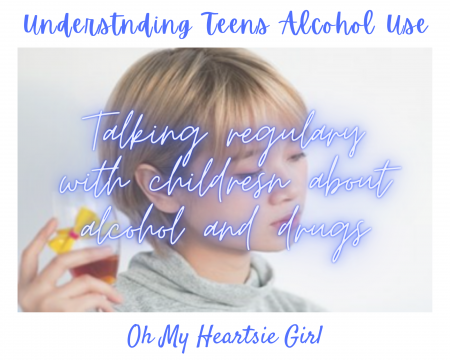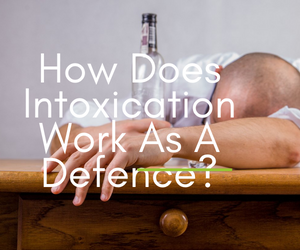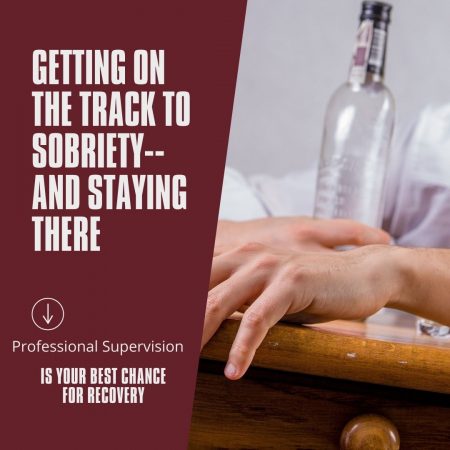
Although there are some common influences, there’s no exact reason why teens abuse drugs and alcohol. In fact, teens who come from supportive homes are susceptible to influence and abuse, too. If your teen doesn’t fall into one of the below-mentioned risk factors, that doesn’t mean they’re not abusing substances. Look for the warning signs of abuse, and if you suspect something’s up, talk to your kid.
A note to parents: You’re encouraged to examine your child’s behavior, looking for influences and warning signs. Some teens may only be experimenting, and early intervention may end the dangerous behavior. Some teens may be susceptible to addiction, and the abuse may lead to a long-term addiction.
For both short-term and long-term users, professional intervention is the best and safest way to treat both the addiction and any influences your child is susceptible to. “Treating addiction in tandem with underlying disorders is paramount to achieving lasting sobriety and relief from the symptoms of depression, anxiety, or other mood disorders,” say experts from the addiction therapy website www.hotelcaliforniabythesea.com.
Peer Pressure is a Leading Influence
You may feel you raised an independent, free-thinker and you did; however, the influence of friends doesn’t indicate a weak mind. It’s something we all face at one point or another in our lives. The secret to ensuring your teen doesn’t feel pressured to abuse substances is to teach him or her rebuttals.
“Parents can empower teens by role playing situations,” reports Livestrong.com. “The parent assumes the role of the drug-using peer and the child practices reacting to being pressured into participating in drug use.”
Don’t forget that family can influence teens too. If members of the family insist certain substances are safe, such as alcohol or marijuana, the teen is more likely to experiment with these substances. If members of your family, even immediate ones, abuse drugs or alcohol, make sure your teen understands that these aren’t safe choices. Help them understand the physical harm these substances cause to their bodies and minds.
It Could be Genetics
DrugAbuse.gov wants you to know that “most children of parents who abuse alcohol or drugs do not develop alcoholism or addiction themselves.” Although addiction can be a genetic predisposition, it’s not guaranteed that the kids of addicts will turn into addicts themselves. It is a factor in teen drug or alcohol abuse, but it’s not a leading factor.
The Role Emotions and Self-Esteem Play
Teens with stress, self-esteem issues, and thrill-seeking tendencies may be prone to self-treating with substances. Underlying mental conditions play a significant role in addiction. These mental issues must be treated as well as the addiction. Get Smart About Drugs, a government-sponsored resource for parents, educators, and caregivers recommends building up self-esteem and looking for resources, such as rehabs and positive role models, to help kids overcome their desire to abuse drugs and alcohol.
Signs of Addiction in Teens
Has your teen changed behaviors recently? Is he or she associating with different people? Does he appear less healthy or withdrawn? There’s no exact behavior that indicates substances abuse, but significant changes could point to abuse. Substances will change your child, such as causing grades to drop or bouts of lethargy. Know the warning signs, then talk to your kid.
Your child may be defensive when you talk to him or her about substance abuse. Don’t let this deter you. Make sure your child knows there are options, including rehab which can help curb the addiction and treat underlying mental issues. Overall, the most important thing is that your child understands he or she can live a happy and healthy life free of drugs or alcohol.
 Not everyone is well-versed in the laws and how it affects their daily lives. For this reason, they may not understand what could and could not be in their best interests.
Not everyone is well-versed in the laws and how it affects their daily lives. For this reason, they may not understand what could and could not be in their best interests.

 When you’ve had a few drinks but you still need to get home, you might try sitting in your car while you sober up. It seems like as good a place as any to sober up, sleep it off, and wait for the alcohol to make it through your system, right?
When you’ve had a few drinks but you still need to get home, you might try sitting in your car while you sober up. It seems like as good a place as any to sober up, sleep it off, and wait for the alcohol to make it through your system, right?